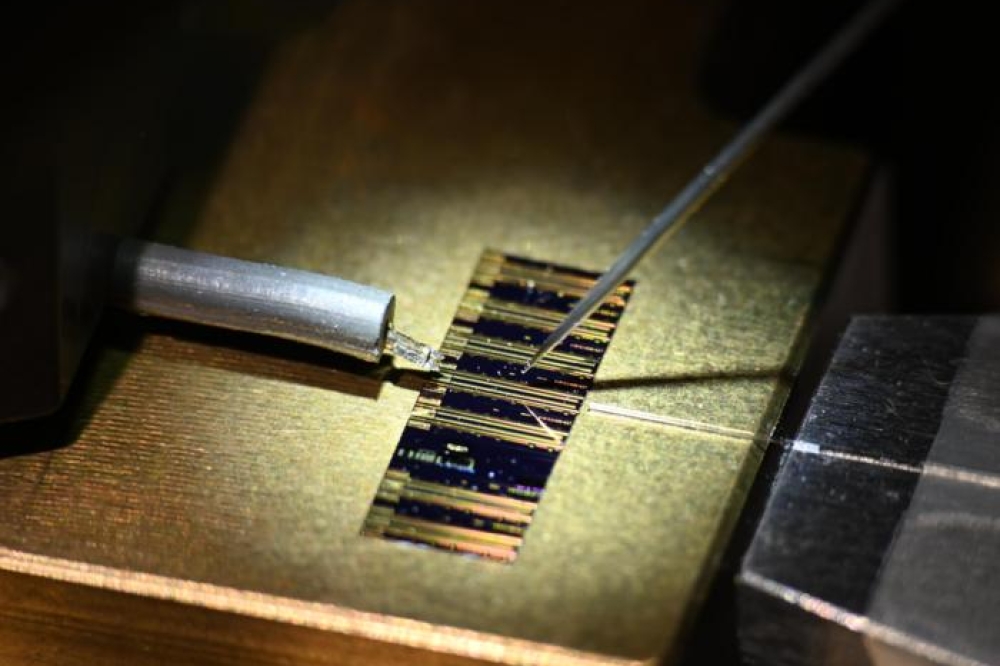News Article
Duisburg-Essen University order 3x2” CRIUS reactor
The new development MOCVD reactor will be installed at the Semiconductor & Optoelectronics Center in Duisburg, Germany and be used for a NaSoL nitride nanowires project.
Aixtron have received an order for one CRIUS deposition system from the University of Duisburg-Essen. The order was placed in the fourth quarter of 2009 and the system will be delivered in the second quarter of 2010. The system will be supplied in a 3x2-inch configuration and comes equipped with an ARGUS multichannel pyrometer.
Franz-Josef Tegude, Chair of Semiconductor Technology, commented, “We selected the Aixtron CCS (Close Coupled Showerhead) system as part of the University’s initiative to acquire a nitride material system for the nitride nanowire NaSoL Project. Our experience with Aixtron equipment goes back a long way - we were one of their very first customers. The reactor’s combination of features including the minor/low rotational velocity is also very impressive. Overall, we have always been very satisfied with the quality of Aixtron engineering, processes and service.
He added, “Of course, we also took into consideration our project partnership. The NaSoL Project aims to achieve production of GaN- and (Al,Ga,In)N-based semiconductor nanowires for improved efficiency solar cells and LEDs. The Aixtron CCS system will provide us with a firm foundation for a smooth and rapid development program for all our partners.”
NaSoL, which stands for “Halbleiter-Nanodrähte für Solarzellen und Leuchtdioden”*) will result in a new generation of semiconductor nanowires for solar cells and LEDs. The intention is to replace more costly traditional semiconductor fabrication techniques with MOCVD. Nanowire-based materials have a number of excellent characteristics and offer improved economics. They are not only significantly more efficient both in absorption and in the emission of light, but also promise very low losses in energy transport. The nanoscale coaxial core-shell heterostructure of these devices has a larger surface area so it absorbs more light and delivers better efficiency. In addition, the new technological process offers device fabrication on lower cost substrates.
Partners in the NaSoL Project are Aixtron, the University of Duisburg-Essen’s Center for Semiconductor and Optoelectronics (ZHO) and the Department of Electronics Materials and Nanostructures.
Supported by the state of Northrhine-Westfalia, the research project was formally approved and started during the third quarter of 2009. The project is funded under the Objective 2-competition NanoMikro + Werkstoffe NRW.































